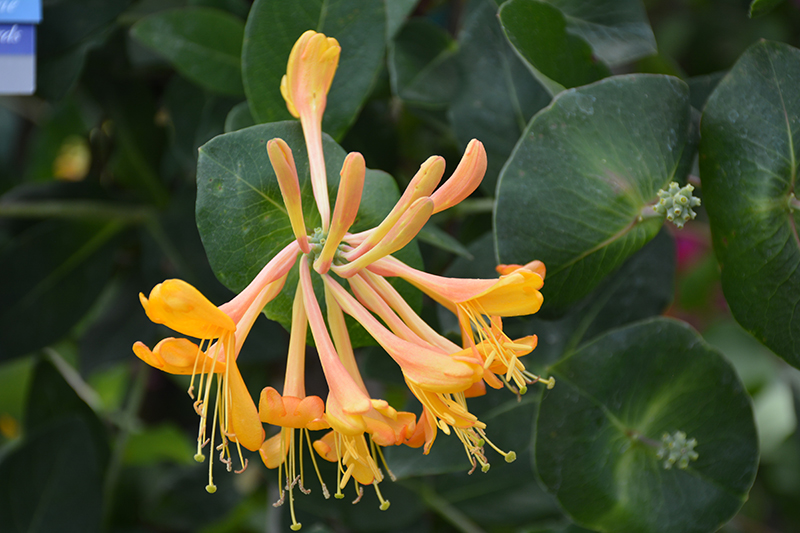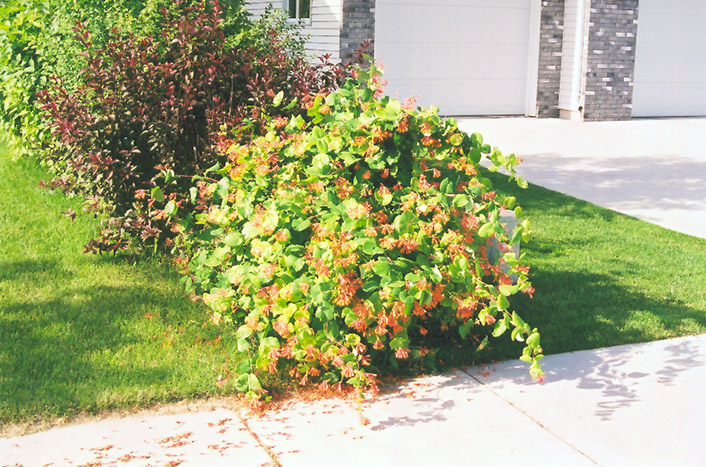Mandarin Trumpet Honeysuckle Lonicera 'Mandarin' Height: 20 feet Spread: 24 inches
Sunlight:
Hardiness Zone: 3a Other Names: Brown's Honeysuckle Description: A hardy vine valued for its showy orange tubular flowers with yellow throats in spring and throughout the summer; very easy to grow and not excessively aggressive, a great choice for arbors and trellises Ornamental Features Mandarin Trumpet Honeysuckle features showy clusters of orange trumpet-shaped flowers with tomato-orange overtones and gold throats at the ends of the branches from mid spring to early summer. It has forest green deciduous foliage which emerges coppery-bronze in spring. The oval leaves do not develop any appreciable fall color. Landscape Attributes Mandarin Trumpet Honeysuckle is a multi-stemmed deciduous woody vine with a twining and trailing habit of growth. Its relatively coarse texture can be used to stand it apart from other landscape plants with finer foliage. This is a relatively low maintenance woody vine, and is best pruned in late winter once the threat of extreme cold has passed. It is a good choice for attracting butterflies and hummingbirds to your yard. It has no significant negative characteristics. Mandarin Trumpet Honeysuckle is recommended for the following landscape applications; Planting & Growing Mandarin Trumpet Honeysuckle will grow to be about 20 feet tall at maturity, with a spread of 24 inches. As a climbing vine, it tends to be leggy near the base and should be underplanted with low-growing facer plants. It should be planted near a fence, trellis or other landscape structure where it can be trained to grow upwards on it, or allowed to trail off a retaining wall or slope. It grows at a medium rate, and under ideal conditions can be expected to live for approximately 20 years. This woody vine should only be grown in full sunlight. It does best in average to evenly moist conditions, but will not tolerate standing water. It is not particular as to soil type or pH. It is highly tolerant of urban pollution and will even thrive in inner city environments. Consider applying a thick mulch around the root zone in winter to protect it in exposed locations or colder microclimates. This particular variety is an interspecific hybrid.![]()
![]()
![]()
![]()
![]()
![]()
![]()
![]()
![]()


